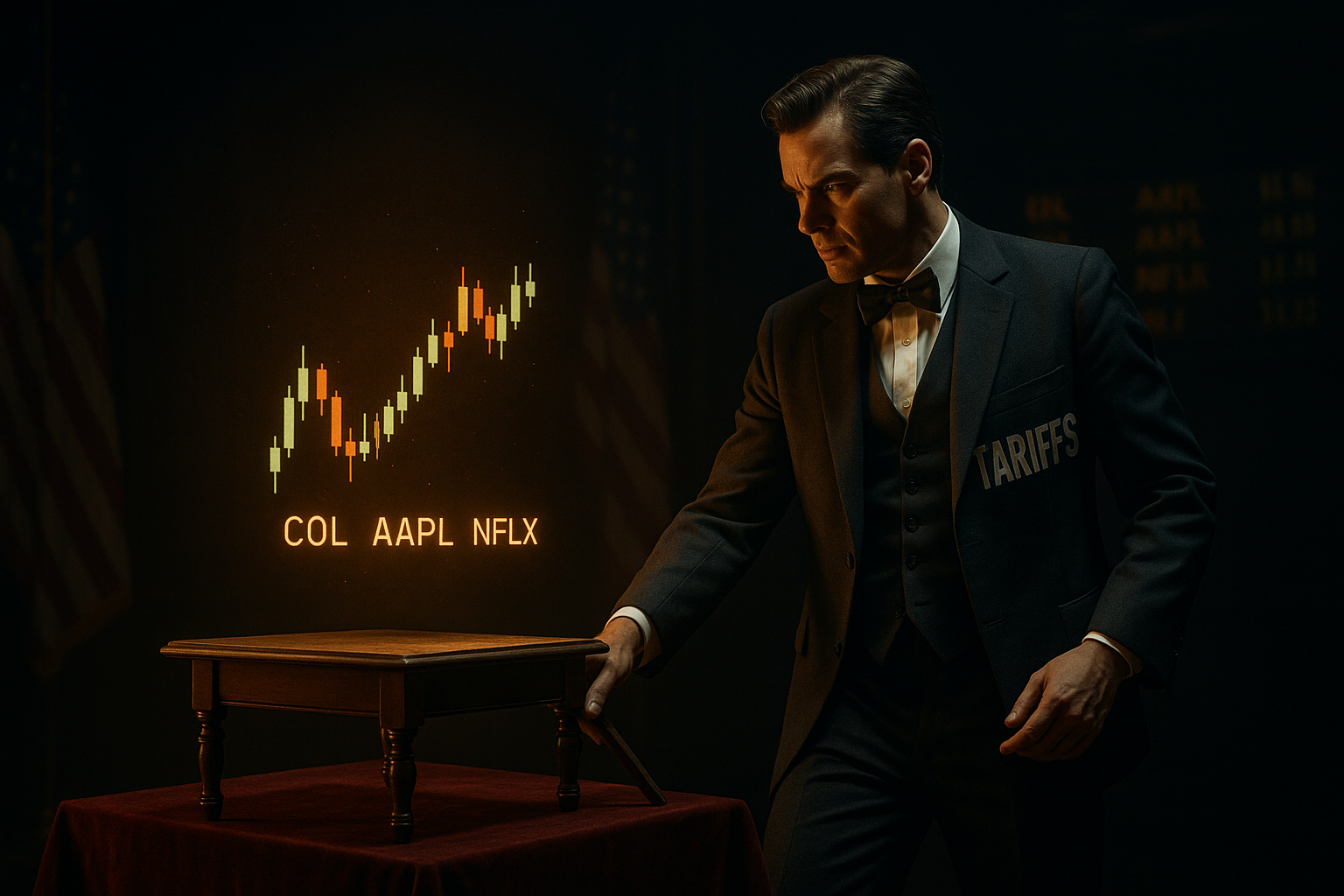The U.S. Chamber of Commerce just blinked first in what promises to be a fascinating game of economic chicken with the incoming Trump administration. Their message? For God's sake, don't tariff us into oblivion.
It didn't take long—barely three weeks post-election—for America's premier business lobby to essentially wave the white flag on tariffs while begging for mercy. Having covered trade politics for years, I've never seen the Chamber quite this... well, let's call it preemptively desperate.
The group isn't saying tariffs are bad, mind you. Heaven forbid! They're just suggesting that maybe, possibly, we could have a system for businesses to request exemptions before the whole economy slides into recession. It's the policy equivalent of saying, "Hit me, but not in the face."
What's striking here isn't the Chamber's opposition to tariffs—that's expected—but the tacit admission that they're happening regardless. The organization that once championed free markets with religious fervor is now reduced to bargaining for scraps at the protectionist table.
Look, tariffs are taxes. Full stop. They're taxes paid primarily by American businesses and consumers, not by foreign countries. I've interviewed dozens of manufacturers who learned this lesson the hard way during Trump's first term. One Ohio factory owner told me, "I voted for the guy, then spent three years filling out paperwork to avoid his steel tariffs." He laughed, but not happily.
The Chamber's strategy here is transparent as glass (imported glass, presumably, with a hefty tariff). By raising the specter of recession, they're creating political cover for Trump to implement a tariff regime that contains enough loopholes to drive a Chinese-made truck through.
Watching the business community process the reality of Trump's economic nationalism reminds me of the five stages of grief. We're currently witnessing the awkward transition from denial to bargaining.
Remember during the campaign when Wall Street types would confidently assure everyone that Trump's 60% tariff talk was "just a negotiating position"? Those same financial wizards are now frantically calling contacts in Washington. I spoke with three investment bankers last week who all said variations of the same thing: "We thought he was exaggerating." (He wasn't.)
Historically speaking, America's flirtations with high tariffs haven't exactly been economic home runs. The Smoot-Hawley tariffs didn't help anyone climb out of the Great Depression. More recently—and I witnessed this firsthand—Trump's first-term steel and aluminum tariffs created a bizarre patchwork of winners and losers, with companies sometimes spending more on tariff lawyers than they saved through protection.
The Chamber knows this. Trump's advisers know this. Heck, even Trump probably knows this.
So why are we doing this again, but bigger?
Because tariffs do accomplish one thing effectively: they signal that someone is "doing something" about economic anxieties. Whether that something helps or hurts is almost beside the point.
(And yes, there are legitimate arguments about using targeted tariffs against China's industrial subsidies—but that's different from slapping duties on everything that crosses our borders.)
What's particularly delicious—in a dark humor sort of way—is watching free-market champions suddenly discover their love for government exemption processes. The invisible hand is great until it's slapping YOUR profits!
The markets, weirdly, seem unconcerned. Either investors don't believe the tariff talk, or they're counting on those exemptions the Chamber is begging for. Or... and this happens more often than anyone admits... they simply haven't thought it through.
I suspect what we're witnessing is just the opening salvo in a complex dance between business interests and the incoming administration. Trump values flexibility. He values deals. The Chamber is essentially saying, "Let's make a deal that doesn't crash the economy, shall we?"
In the coming weeks, expect every industry group in America to explain why their particular widgets are essential to national security, economic prosperity, and probably puppies and rainbows too. Because nothing says "America First" quite like "but please make an exception for my company's supply chain."
The Chamber fired the first distress flare. Who'll be next to panic?




